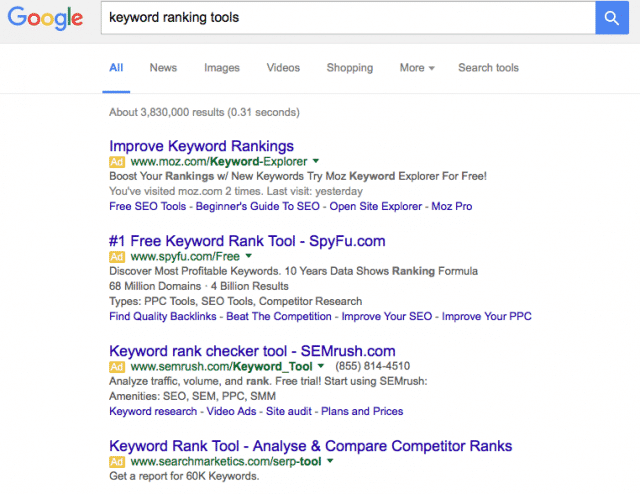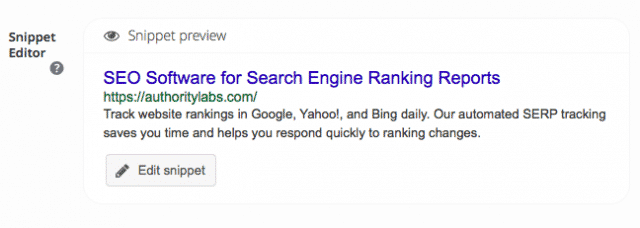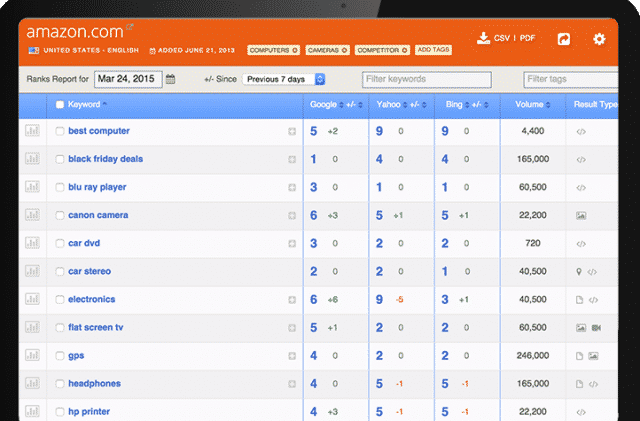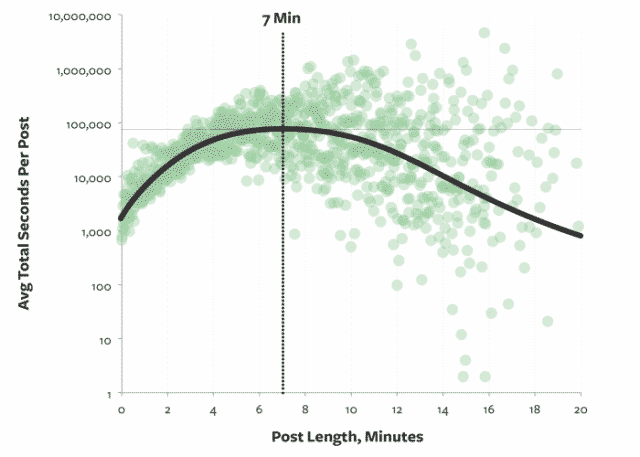Search engine optimization can make or break a website. If a website is created and published in cyberspace without any type of SEO strategy or practice, it’ll continue to sit alone in cyberspace, most likely hanging out with Pluto. SEO is an ever evolving task that requires research, time, and best practices knowledge.
What worked a few months ago in SEO may not work a few months from now, just as your current rankings most likely won’t hold consistently overtime without SEO. Many beginners, even “specialists”, make optimization mistakes on the daily just out of ignorance to best practices.
Could you be one of these people? Probably not, but there’s a good chance you’re doing at least one of the mistakes below. Read on to see if you’re making any of these common SEO mistakes.
Caring More About Likes Instead of Links
Engagement on social media can mean a lot to a business, but if it doesn’t convert, what is engagement reallygood for? A business can only spend so much of a budget on branding before it needs to start seeing a return on investment.
For SEO purposes, it’s more important for a business to obtain quality links from credible, and relevant, websites than it is to receive 1,000 double-taps on an Instagram post. Links will help increase traffic and build a website’s credibility to bots and search engines, similar to how a large following on social media can make a business seem more credible to consumers.
Instead of focusing 100% of your marketing attention and budget on engagement, split the percentage and add a heavy focus on obtaining links to your website. You can do this through good-ole-fashioned relationship building.
Reach out to businesses that are within your industry or could be a great industry to partner with and look for opportunities to cross promote each other through links and blog posts. Submitting blog posts to established websites is another way to build links. Pitch topics that make sense for a website’s demographic and include a link back to your website in the bio or within the blog post.
A great example of building a quality connection is with Lauren Conrad and Anna James. Both ladies are bloggers in the fashion industry. They’ve built a relationship overtime that has allowed them to cross promote each other through blog posts, display ads, social media posts, and sharing links on each other’s blogs.
The key with link building is to avoid black hat techniques that can get your website penalized and instead create quality link relationships. For example, a realtor has no place receiving links from a Mercedes dealership, unless the realtor does car dealership sales on the side. It would be more beneficial for the realtor to receive quality links from city centers, home improvement, and real estate websites rather than the car dealership.
Just Focusing on PPC and Not Organic Search
Sure, pay-per-click advertising is great and can produce results for all types of businesses. That doesn’t mean you should only rely on PPC and forget about organic search. PPC can only get a website exposed to so many people in a day, all of which need to be interested in clicking on an “ad” versus an organic search result. Time and effort still need to be put into organic search in order for a business to rank for specific keyword terms.
Work on improving your organic search through keyword research, content marketing, link building, and website optimization.
Never Updating a Website’s SEO Once It’s Been Created
Optimizing a website is not a one-and-done kind of task. Sprinkling a little bit of SEO dust on a new website from a web developer will not get your website to rank on Page One. Ranking qualifications change, updates are required, and the competition improves. That’s why items like keywords on a website need to consistently be updated to match the development of new search queries, especially with the increase of voice search.
Regularly optimize your website by adding new content based on keyword targeting. Create new blog posts that have to do with recent search queries and popular keyword terms. You’ll also need to update title tags and meta descriptions so they coordinate with search results. <Title> HTML tag defines a web page’s title. Meta descriptions give a brief description of what to expect on the web page.
Both are required to help explain to bots and searchers what kind of content a web page contains. It’s not good practice to constantly update title tags, but it is good to give them an optimized scrub every once and awhile so they make sense for what the page offers and is being searched for.
Adding new content to a website and making optimization updates also let’s search engines like Google know you’re business is still in business. An active website shows an active business and helps improve ranking over a website that hasn’t been updated in years.
Forgetting to Regularly Check the Website’s Performance and Analytics
How many broken links are published on your website? Do you know how many pages are displaying errors, and why they have said errors? How big are the image file sizes?
If you don’t have answers to these questions, it’s because you aren’t checking your website’s analytics regularly. By checking your website’s performance frequently you’ll be more aware of ranking and performance issues and be able to address them immediately, instead of waiting and letting your rankings slowly start to fall due to poor performance.
Use Google’s PageSpeed Insights to check how fast pages are loading, Google Analytics for everything data-related, Mobile-Friendly Test to check on the mobile performance and AuthorityLabs keyword tracker to make sure your website is not only performing to par, but ranking higher than the competition for specific keywords.
Not Producing Long Enough Content
Long gone are the days of 350 to 500 word pages being sufficient enough for search. People, and search engines, want more content on the page and are expecting content that is worth their time.
The blogging service Medium conducted a study and found that 7-minutes is the ideal time it should take for a person to read a post. A post length of 7-minutes is most likely to keep a reader engaged according to their study, who found shorter and overly long posts to only receive about 1,000 page views. The 7-minute post range was receiving around 10,000 to 100,000 page views.
If you can answer a search query in one paragraph or less, congratulations! That doesn’t mean you need to publish a blog post with just a one paragraph answer. Increase the content length by doing further research on the query and discover similar topics that are searched with those specific keywords. Provide a one-stop solution to any type of answer that has to do with such query. This will help lengthen your content while still ranking for relevant keywords and avoiding an overly “fluffy” post.
Expecting Page One Rankings, NOW
SEO does not happen overnight. It doesn’t even happen over a few nights. Getting your website to rank on “Page One” takes a lot of time and effort. Be patient and consistent with your SEO efforts and don’t give up when you see your page views increase by single digit percentages and not triple-digits. Visitors will come as long as you’re regularly building links, producing quality content, ranking for relevant keywords, and consistently improving the website’s performance.
Have you fallen for any of the not-so-good SEO practices before? Comment below with some of the “silly” SEO mistakes you’ve made in the past and how your website survived.






